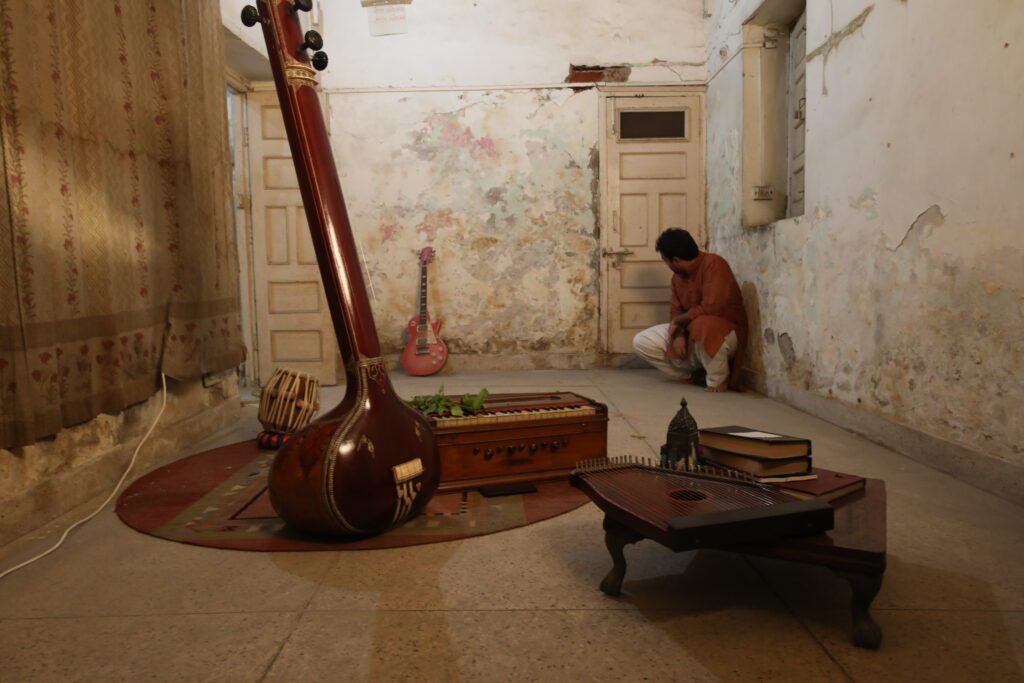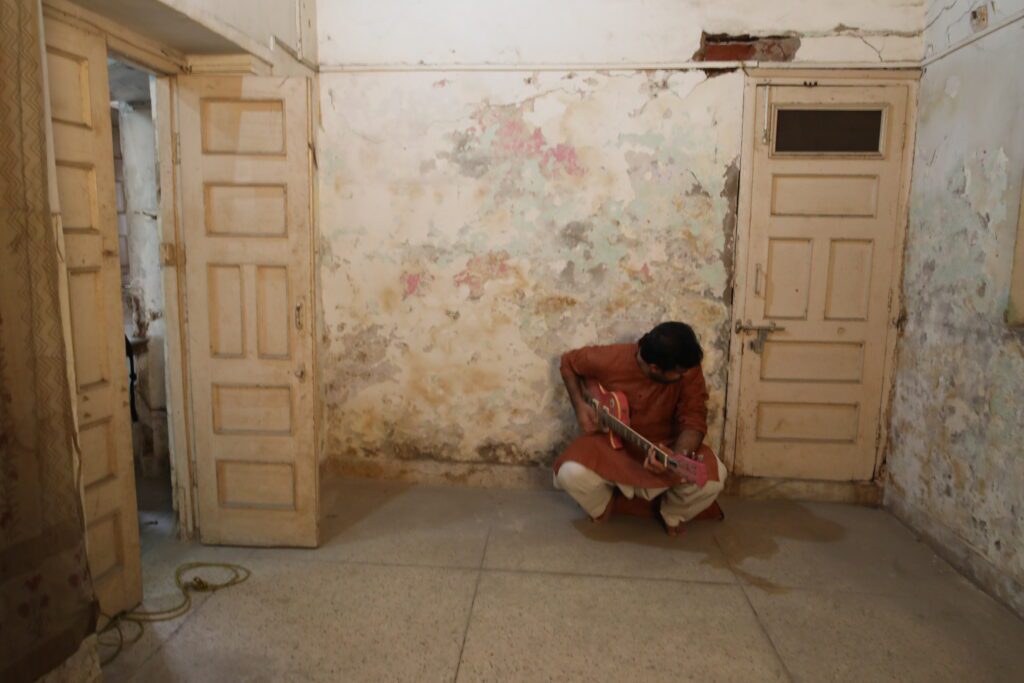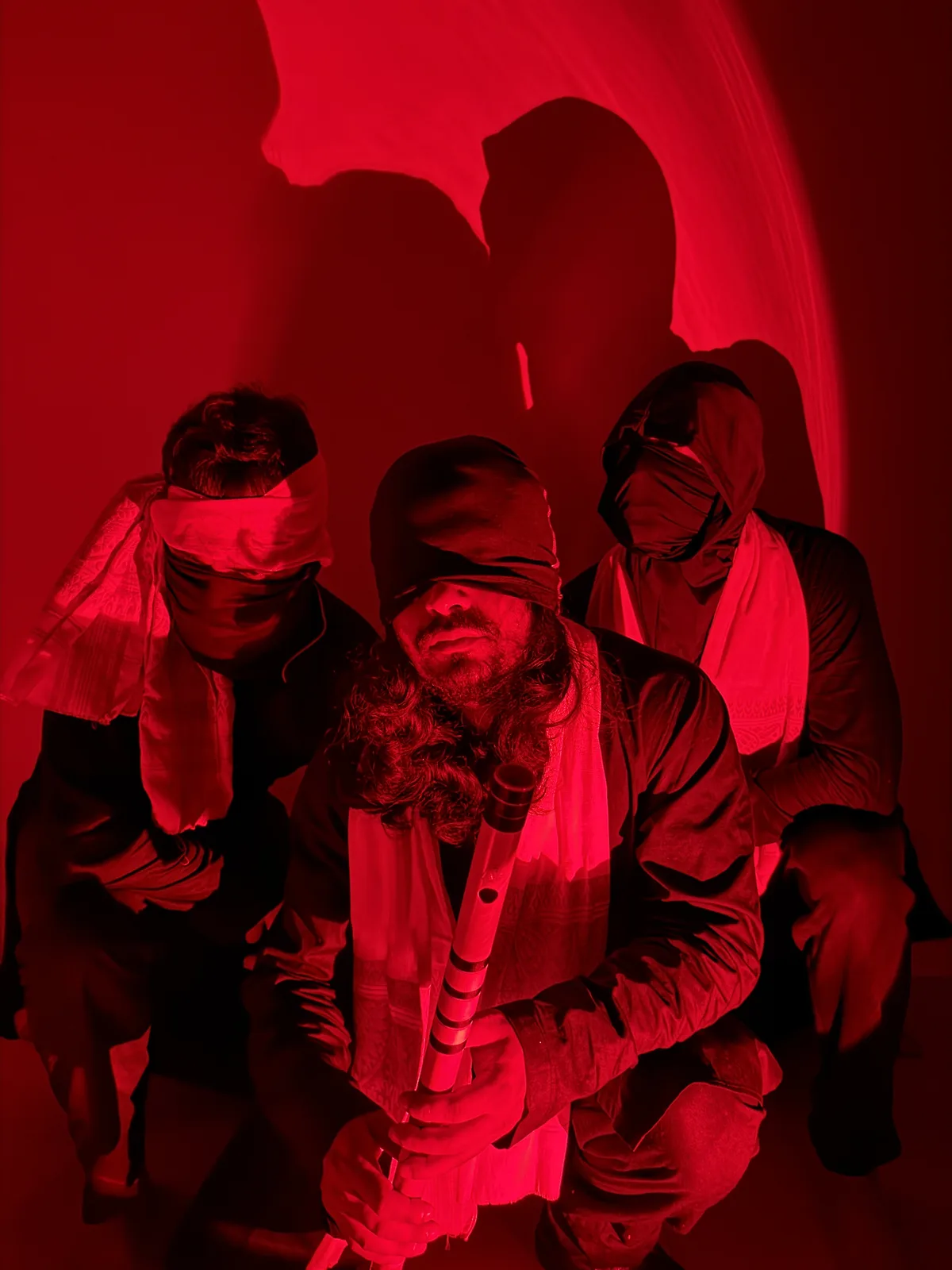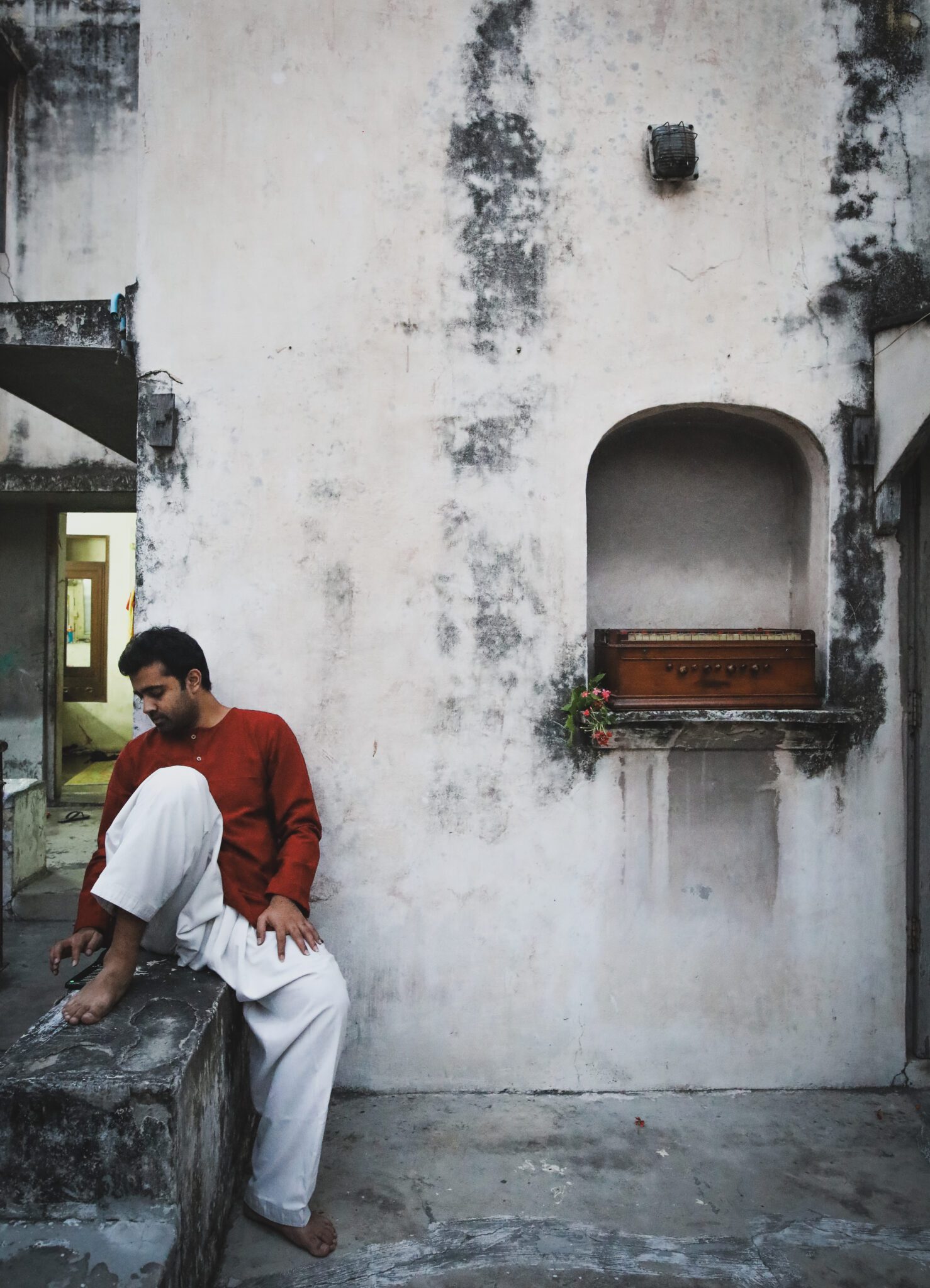A beloved appanage of critiquing music is the abode of artistry I wouldn’t normally come across. Thriving in a sphere away from the interstices of the general public, obscure and seemingly diminishing artforms flourish here, undisputed by outside influences. Notes From The Dark, a four track EP by Delhi based artist SafarRang is the newest inclusion in the reiterated abode.
‘Each of the songs is from a completely different universe, and it feels extremely satisfying to have had some of Delhi’s most seasoned musicians feature on the songs that needed them’, says SafarRang
Incorporation of Hindustani Khayal traditions while maintaining Western influences of Punk, Grunge and Funk, makes the appellation of ‘soulful’ the apt description of his musicality.
An aficionado of rawness in music, this project provides relief to the hankerings I recruited in pursuit of music that stands out. Barely a second into the first track “World”, we are welcomed into SafarRang’s artistic experience with a rather somber tonality. The lines “Oh the world is empty” accompanied by mellowed ominous tones weave into a seamless listening experience, where the artist divulges the disfigurements, irregularities and the hideousness of humankind with librettos like “We’re living in a broken world, or we’re broken in a perfect world” signifying his multitude of discontentment with the monotony and the miseries one encounters. Any disbelievers in the repulsiveness of the world are met with a rhetorical, where SafarRang exhorts them to showcase their understanding of the world.
The artist describes the composition of the song best- “Lo-fi drones and an industrial piano vibe are contrasted by celebratory shehnai sounds. The harmonium adds a heady Sufi-ness, symbolizing a life-affirming bond and precarious optimism.” The track culminates with a vocal battle with the shehnai, an immaculate Sufi experience.
Ritwik De of Ghar Ka Studios and the man behind acts Tankbund, Zokova and The Yellow Bucket has produced and played on the EP,.
‘What Ritwik brought was a unique musical sensitivity, working with him was an extraordinary experience. I think having grown up in Delhi around the same time, and in the music circuit, the collaboration naturally worked well.’- SafarRang on Ritwik’s inclusion in the EP

The inherent trope of the EP is approaching and withstanding the currents of loneliness, angst and affliction in a more pragmatic light. ‘In Baaton Mein’, the only Hindi track off the EP, recurs the idea is that no matter what one experiences—beauty, mystery, or challenges—there is always a sense of dedication and support that guides and sustains them. The song ultimately emphasizes that with dedication and the support of other individuals, one is never truly alone. Dhruv Bedi beautifully plays the Raga Bageshree on his Sitar, over the backdrop of a complex arrangement of the piano, the swarmandal, harmonium, guitar, and drums.
As the second half of the EP approaches, evidence of SafarRang’s devotion to music is mammoth. The third track “Drop Fear” speaks of the precarious optimism during troubled times. Illusions of invincibility are dilapidated and the unease of being in one’s own company is comforted. Over the course of the track, the song blends rock’n’roll, funk, punk, and grunge, crunchy guitars with the sounds of the swarmandal. The expedition to the end of the track is a passage through the intense musical vocalism of SafarRang, as the genres and instruments commingle, shepherding a musical euphoria for the listeners.

As the end of the EP approaches, so does my admired track of the entire experience. “Hold on” is a nostalgic nod to the early Indian indie rock sound of the early 2000s. The track speaks of acceptance rather than illusionary escapades, and urges the listener to hold on to the unilluminated passageway of life as a metaphorical “dawn” is imminent. The daunting task of escaping the vicious cycles of temporary fulfillment by relying on a “friend” is accentuated as the aches and spasms recommence to sting the proprietor of the recollections of the bygone. Advaita’s Mohit Lal, son of Kathak pioneer and Padma Shri awardee Pandit Durga Lal, steers the reins of the track through the tabla, reaching the zenith chorus of “Hold on, because the dawn isn’t far”, before fading out.
In his own revelations, this project is SafarRang’s “dawn”. A breakthrough is brewing, with the adeptness of the musician self-evident. The project heralds all the praise that comes it’s way, placing itself as a much needed insertion to the classical scene, both lyrically and musically. A career that will be followed with keen interest from this point alone, SafarRang’s music is foreshadowed to traverse places, and we are in luck to witness him laying the cornerstone to his discography.





























